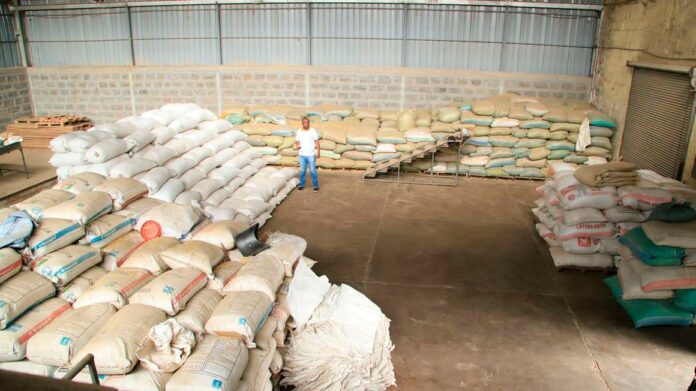While agribusiness is considered one of the profitable ventures, it can as well be a loss-making venture due to challenges such as lack of market.
It was for this reason, among others, that Anthony Wambua, an accountant by profession, stepped up to establish Kingdom Grains Company, which does bulk-sourcing of maize, soybeans, chia seeds, red sorghum, and beans, among others.
Wambua sources his produce from small-scale growers and traders in Kenya, Uganda, and Tanzania, then sells them to millers and other bulk purchasers.
His customers consist of those looking for legumes, maize, and red sorghum for human consumption, as well as those looking for cotton seed cake, sunflower seed cake, and rice germ to produce animal feeds.
He notes that mastering this trade can take some time, adding that the challenging local business environment has forced them to rely on imports in a bid to cut losses.
“We are being forced to import maize from Uganda, which attracts taxes because of the high cost of fertiliser in Kenya that makes production costs go up.
Kenya is also a highly competitive business environment. The market is vibrant with many millers thus the cost of buying raw materials goes higher,” he says.
To ensure a smooth supply of grains, the businessman says he contacts farmers in advance before they harvest.
Breakdown of fees Kenyans will pay for services in Small Claims Court
Wambua further explains that to succeed in this business, one also needs an efficient supply chain to avoid losing stock due to transport challenges.
“We create relationships with the farmers. People appreciate when you walk with them, from when they start growing, as opposed to showing up when it’s harvest time. We somewhat involve farmers in the whole process,” he says.
He, however, notes that not all grains make it to his store, adding that all grain purchased must meet some standards to prevent contamination.
“One of the key concerns is the issue of aflatoxin, which is a post-harvest issue, so we work alongside suppliers on post-harvest handling where we can because when you compromise on quality from the source, the whole value chain is compromised,” he says.
Since its launch, Kingdom Grains has not only addressed the market challenges faced by farmers but has also created direct job opportunities for at least 25 workers.
The firm does about 1,000 tonnes per week and is planning to collaborate with other traders to increase their performance to 300 metric tonnes a week.
Wambua notes that his firm is also strategizing on how to import grain on behalf of milling companies, after two companies requested them to import on their behalf 3,000 metric tonnes of maize.
He advised those intending to venture into such a business to get information about the different grain value chains from sourcing, standards, harvest periods, supply chain components of transport, and logistics.
“There’s no shortcut but to start on a small scale with smaller volumes and grow. And even as you start, it’s going to be a learning curve. Everything you do should be market-driven and informed by the needs of the market,” he says.









